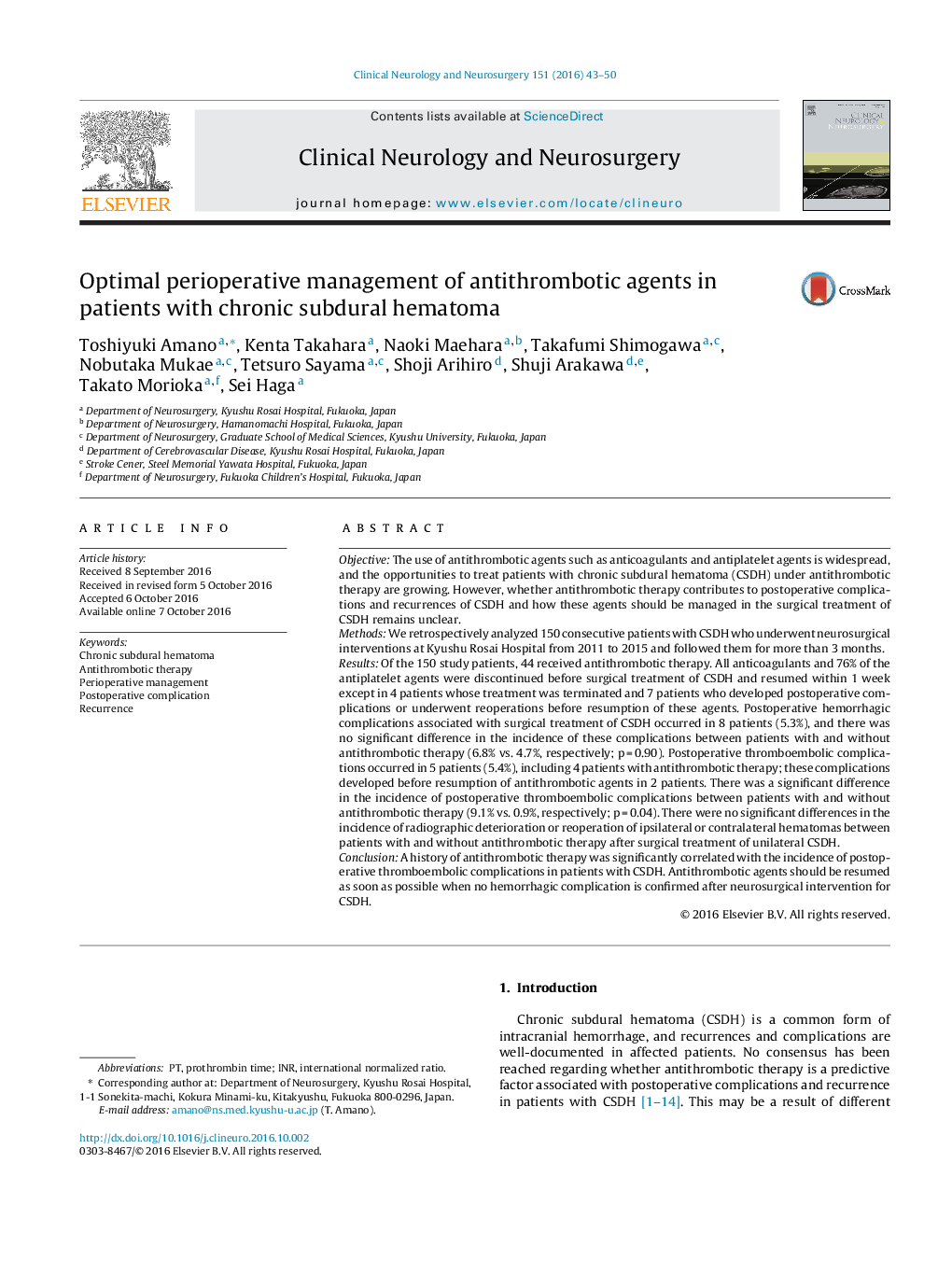| کد مقاله | کد نشریه | سال انتشار | مقاله انگلیسی | نسخه تمام متن |
|---|---|---|---|---|
| 5627085 | 1579671 | 2016 | 8 صفحه PDF | دانلود رایگان |
- Antithrombotic therapy is significantly correlated with thromboembolic complications.
- Antithrombotic therapy does not contribute to hemorrhagic complications.
- Antithrombotic therapy does not contribute to ipsilateral CSDH recurrence.
- Antithrombotic therapy does not contribute to contralateral CSDH growth.
- Antithrombotic agents should be resumed as soon as possible after CSDH surgery.
ObjectiveThe use of antithrombotic agents such as anticoagulants and antiplatelet agents is widespread, and the opportunities to treat patients with chronic subdural hematoma (CSDH) under antithrombotic therapy are growing. However, whether antithrombotic therapy contributes to postoperative complications and recurrences of CSDH and how these agents should be managed in the surgical treatment of CSDH remains unclear.MethodsWe retrospectively analyzed 150 consecutive patients with CSDH who underwent neurosurgical interventions at Kyushu Rosai Hospital from 2011 to 2015 and followed them for more than 3 months.ResultsOf the 150 study patients, 44 received antithrombotic therapy. All anticoagulants and 76% of the antiplatelet agents were discontinued before surgical treatment of CSDH and resumed within 1 week except in 4 patients whose treatment was terminated and 7 patients who developed postoperative complications or underwent reoperations before resumption of these agents. Postoperative hemorrhagic complications associated with surgical treatment of CSDH occurred in 8 patients (5.3%), and there was no significant difference in the incidence of these complications between patients with and without antithrombotic therapy (6.8% vs. 4.7%, respectively; p = 0.90). Postoperative thromboembolic complications occurred in 5 patients (5.4%), including 4 patients with antithrombotic therapy; these complications developed before resumption of antithrombotic agents in 2 patients. There was a significant difference in the incidence of postoperative thromboembolic complications between patients with and without antithrombotic therapy (9.1% vs. 0.9%, respectively; p = 0.04). There were no significant differences in the incidence of radiographic deterioration or reoperation of ipsilateral or contralateral hematomas between patients with and without antithrombotic therapy after surgical treatment of unilateral CSDH.ConclusionA history of antithrombotic therapy was significantly correlated with the incidence of postoperative thromboembolic complications in patients with CSDH. Antithrombotic agents should be resumed as soon as possible when no hemorrhagic complication is confirmed after neurosurgical intervention for CSDH.
Journal: Clinical Neurology and Neurosurgery - Volume 151, December 2016, Pages 43-50
